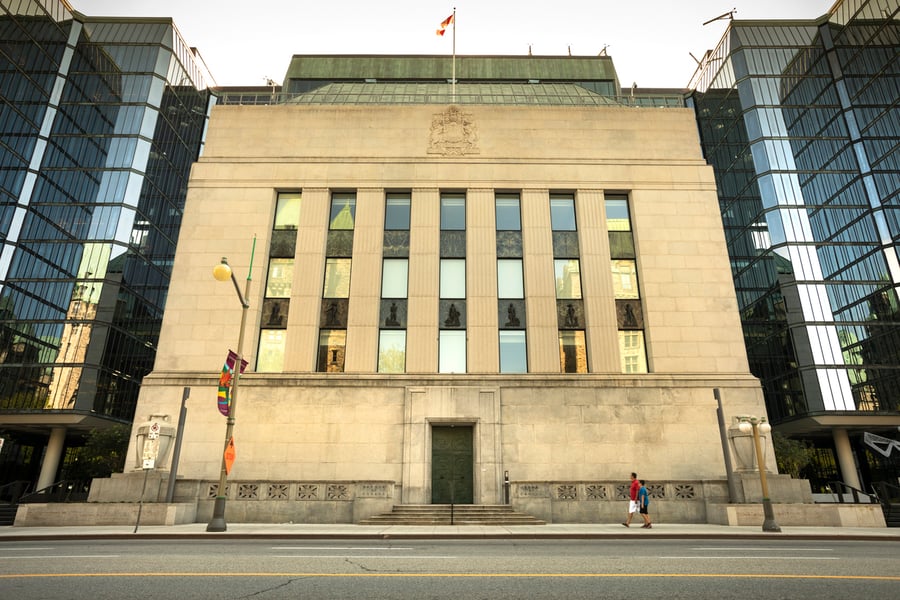Economists predict a series of rate reductions

The Bank of Canada is gearing up for a series of interest rate cuts starting in September, driven by signs of a cooling economy and declining inflation.
Economists expect the central bank to lower its overnight rate by 25 basis points at its September 4 meeting, with additional cuts likely in the months ahead, according to a recent Reuters poll.
The poll, conducted from August 27-29, reflects growing expectations that the central bank will move more aggressively to lower rates, given the current economic conditions. All 28 economists surveyed predicted a rate cut in September, which would bring the Bank of Canada's key rate down to 4.25%.
A majority of the economists, around 70%, also forecasted further reductions in October and December, which would bring the rate to 3.75% by year-end. This marks a shift from a previous poll in July, where nearly 90% of respondents expected the rate to be at 4.00% or higher by the end of 2024.
The central bank's current rate stands at 5.00%, the highest in over 23 years, following two cuts of 25 basis points each in June and July. The anticipated rate cuts come as inflation in Canada dropped to a 40-month low of 2.5% in July, edging closer to the Bank of Canada's target of 2%.
Meanwhile, the labour market is showing signs of weakness, further prompting the central bank to consider more easing.
"They [Bank of Canada] are going to cut next week and retain the dovish bias that they've had for the last few months... the Canadian economy is in worse shape than the US and we've got a more interest rate sensitive economy," explained Taylor Schleich, rates strategist at National Bank of Canada. "As a result, they're going to continue to cut after this meeting, in October and December, and probably in the first few meetings of 2025 as well."
The Q2 GDP data plays a crucial role in the BoC's decision-making process. Economists polled by Reuters expect annualized growth of 1.6% for the second quarter, lower than Statistics Canada's preliminary estimate of 2.2% and Q1 growth of 1.7%.
"Canada is a much easier story to tell when it comes to the economic backdrop. Especially starting from this year, we are seeing softening in the economy and persistent deflationary pressure that is stemming from that," RBC senior economist Claire Fan told Reuters.
"From the BoC's perspective, it's a much clearer picture for them to form a decision rather than the Fed who still to this day has to contend with a lot of uncertainty in their inflation data as well as the labour market data."
Read next: Who's worried about a recession? Not multi-property owners, study finds
If the poll results are accurate, the BoC will implement 75 basis points of rate cuts before the US Federal Reserve begins its own reductions. This divergence in monetary policy hasn't negatively impacted the Canadian dollar, which has gained about 3.0% against its US counterpart in August, reaching a five-month high.
Looking further ahead, the Reuters poll indicates expectations for an additional 100 basis points in rate cuts by the BoC in 2025, bringing the overnight rate to 2.75% by the end of that year. This projection is slightly lower than the 3% rate forecasted in last month's poll.
Make sure to get all the latest news to your inbox on Canada’s mortgage and housing markets by signing up for our free daily newsletter here.



